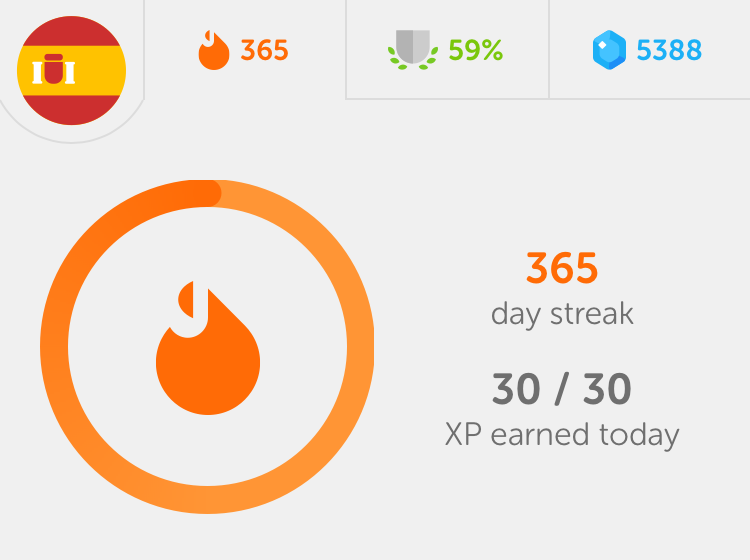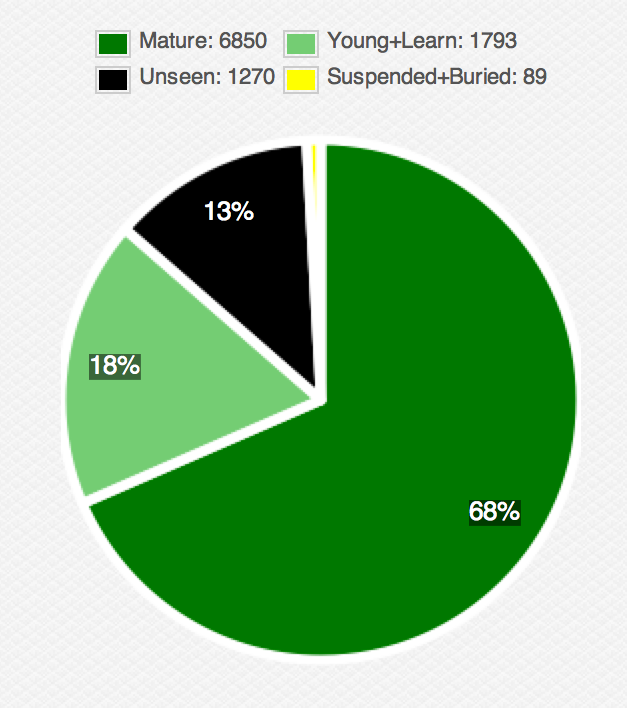In one of my last posts, I talked about habits and their power to change who you are. For me, the habits I acquired supported me in my endeavour to learn a new language. Since about one and a half years, I’ve been trying to learn Spanish. Ever since I first took up a class back in high school, I was hoping to become fluent in another language. Unfortunately, I dropped out of that high school class after the first week was over: I had already become tired of having to learn vocabulary each and every day.
This adversion towards learning vocabulary made it impossible for me to make progress back then. Creating habits around language learning and simplifying the learning process changed that for me.
I’ve tried out Duolingo before, and while I liked the playful approach of collecting points and opening up additional content it never quite caught on with me. I never felt like Duolingo would be able to provide me with everything I needed to know about a language and I was put off by the prospect of having to learn spanish for multiple years without making reasonable progress towards fluency. Additionally I learned about an application called Anki through a polyglot named Gabriel Wyner. After having been quite successful in learning multiple languages himself, Gabriel Wyner created a project called Fluent Forever. Using the Anki application, he provided some decks that help you to learn the basic words and sounds of a language. Inspired by the prospect of learning a new language in a rather short amount of time and with a simple mobile application, I reevaluated how I could reach my goal. I came up with a three-phase plan, which I am still adhering too as of today:
- Start by learning as much vocabulary as possible. Create a daily habit of learning 10 to 20 new words each day. Define a goal for how many words I want to learn.
- Begin to read and watch spanish media: Books, movies, tv shows, etc.
- Get into regular contact with native spanish speakers in order to get used to the language and figure out the grammar of the language.

Right now, I am at the end of the first phase. I have used Duolingo and Anki to make it as easy as possible for me to keep up with my daily habit. Actually, I finally reached a year-long Duolingo streak just recently. For Anki I’ve been using a deck from their large public online collection. (Due to the fact that Anki keeps track of a bunch of different statistics, I am planning on doing another post once I finish this deck to dive into some of those numbers.)
Until recently, I wasn’t quite sure whether this whole plan would ever work out. But then, a couple of weeks ago, I was in Mexico visiting an old high school friend of mine. And to my surprise, my vocabulary was good enough to create basic sentences and understand a lot of different conservations during my day-to-day activities.

Of course, I need more practice and immersion to make this perfect, but by starting out with a larger colleciton of words you take away a huge hindrance on the way to achieve fluency. Mastering this vocabulary allows you to truely focus on the conversations, the grammar and other important quirks of a language.
What comes next is going to be more difficult: mastering spanish. From here on out keeping up with my habit will not be as easy as opening up a mobile application every day, but I hope that I will find a way that works for me. Time will tell if I can immerse myself enough to achieve my goal.
If any of you have any tipps or ideas on what else might help, let me know. I would love to hear your thoughts!